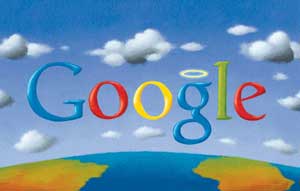With sales reaching nearly $700 billion in 2005 and estimated to exceed $1 trillion by 2012, e-commerce (EC) has been transforming the landscape of international trade significantly.
Currently, over 97% of Vietnamese businesses remain outside the realm of e-commerce, according to a recent survey published during a seminar organized by VCCI in March 2006. To advance in the integration process, Vietnam must develop a strategic plan in this field promptly.
In 2005, e-commerce in the United States grew by 28% compared to the previous year, while in France, it surged by 44%. For the past decade, e-commerce has consistently maintained double-digit annual growth rates and has remained unaffected by crises. Although e-commerce still occupies a relatively modest position in the economy (2.4% of retail sales in the U.S. in Q4 2005 and under 1% in France), analysts advise against assessing the impact of the Internet on the market solely based on these figures.
When it began to gain popularity a decade ago, the Internet raised many hopes among neoclassical economists that Leon Walras’s theory of perfect competition would finally become a reality. The Internet seemed poised to be an ideal market where countless suppliers and customers could interact freely and transparently.
Ten years later, transaction methods have evolved dramatically over just a few years, and many new factors have emerged, replacing previous players. In France, with sales exceeding 3 billion euros in 2005, online tourism accounted for 45% of total e-commerce sales across various sectors. In the U.S., in the tourism sector, online transactions accounted for about one-third of sales, a figure expected to surpass 40% by 2007 according to Cuswright Consulting. Another statistic shows that 63% of airline tickets in the U.S. were sold online, compared to 24% in Europe.
The Era of New Intermediaries: Google
 A few years ago, it was often said that the Internet would ring the death knell for intermediaries, as sellers and buyers would interact directly. However, in reality, the opposite has occurred: the Internet is facilitating the rise of several new, globally significant intermediaries.
A few years ago, it was often said that the Internet would ring the death knell for intermediaries, as sellers and buyers would interact directly. However, in reality, the opposite has occurred: the Internet is facilitating the rise of several new, globally significant intermediaries.
Search engines like Yahoo, Google, and Microsoft’s MNS are playing an increasingly important role and continue to evolve into central players in the electronic economy. Today, Google’s market capitalization far exceeds the fixed values of many players in the traditional economy: with an estimated total value exceeding $100 billion, Google’s financial market value surpasses that of Verizon, the second-largest telecommunications provider in North America.
What has contributed to Google’s remarkable success? It is due to investors recognizing the increasing role of this network as an information intermediary. At the beginning of 2004, when Google was at its peak, it processed over 80% of the searches on the Internet. Not content with merely meeting keyword search demands, Google is now entering the markets for books, music, and online video, promising to build the largest digital library within six years, featuring 15 million works from four major English-language libraries worldwide.
The iPod Culture Disrupting the Cultural Industry
According to data from GFK Institute, in 2005 in France, nearly 1.3 billion files were downloaded from the Internet, including 1 billion music files, 160 million software files, 120 million movie files, and about 30 million video game files. These are staggering numbers. However, it is noteworthy that paid file downloads constitute a very small fraction: out of 1 billion music files, only 20 million were paid downloads, representing about 2%, which is not surprising.
This phenomenon pleases many, especially Apple, which currently dominates the compressed music player market with its iPod: from 2001 to 2005, 40 million iPods were sold worldwide. Internet service providers also share this joy as they witness a surge in subscription demand. However, the music and film industries are struggling. In France, they are among the strongest advocates for the enactment of copyright laws related to the Internet.
Amazon – The Online Bookstore
What sets Amazon, the online bookseller, apart from traditional bookstores? First and foremost, it is the ability to provide tailored services to individual customers. The Internet allows for personalized marketing that physical commerce cannot achieve. And, “those who believe they can target their marketing better, believe they can sell at higher prices.”
Amazon is a pioneer in the field of Customer Relationship Management (CRM): for instance, the online bookstore can post customer reviews of the works they purchase, leveraging customers to market products they are most interested in.
The development of e-mail marketing (customer surveys via email) also falls within this logic. Although spending in this area in 2005 (40 million euros) was still a drop in the bucket compared to the 5.2 billion euros spent on television advertising, it is clear that many traditional advertising channels, such as newspapers and direct mail, are losing advertising market share.
eBay: The Explosion of the C2C Model and Online Second-Hand Market
With the Internet, the second-hand market has changed dramatically. The success of eBay, which celebrated its 10th anniversary in 2005, is a testament to this change.
As the world’s leading e-commerce platform, eBay operates without any inventory. Goods sold on eBay go directly from the old consumer to the new consumer. With 150 million registered users worldwide and transactions reaching $44 billion in 2005, along with 5 million items across more than 50,000 categories listed for sale, eBay is now the largest store in the world.
According to eBay’s own statistics, in 2004 in the U.S., 430,000 people were living entirely or partially off profits earned from their activities on this platform. eBay’s rapid success has been quickly adopted by many other networks specializing in selling second-hand goods online, such as Priceminister, 2xmoinscher, and Amazon or Alapage…
T.GIANG


















































